|
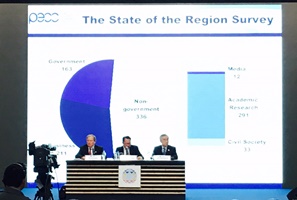 The State of the Region report was released through a press conference held in Manila during the APEC Leaders’ Week on November 16th 2015. The State of the Region report was released through a press conference held in Manila during the APEC Leaders’ Week on November 16th 2015.
The Report is an annual statement of PECC’s views on the major developments affecting Asia-Pacific regional cooperation. The Report contains a broad overview of economic state of relations and other issues as they relate to economic state of the region. It contains results from its annual survey of opinion-leaders of perceptions on key developments in the region and priorities for APEC. A total of 710 opinion-leaders from 28 economies including all 21 APEC members responded to this year’s survey that was conducted from September 21st to October 16th 2015.
According to Asia-Pacific opinion-leaders who participated in the annual PECC survey, the top five risks to growth in the region are:
- A slowdown in the Chinese economy
- Failure to implement structural reforms;
- Lack of political leadership;
- A slowdown in the US economy; and
- Lack of adequate infrastructure.
The report can be viewed and downloaded from the PECC website by clicking here.
Related news reports are accessible here.
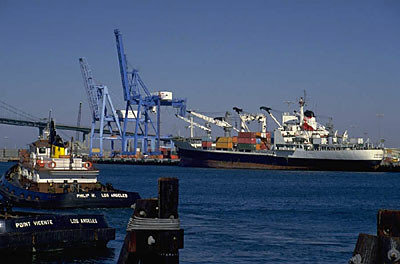 Developments of ports and of new maritime routes are ways to better link economies of PECC and enhance connectivity that facilitates regional and international trade. In the past recent years, maritime trade has been growing, to and from PECC economies in the Asia- Pacific, for reasons of reliability, efficiency, and lower costs. Developments of ports and of new maritime routes are ways to better link economies of PECC and enhance connectivity that facilitates regional and international trade. In the past recent years, maritime trade has been growing, to and from PECC economies in the Asia- Pacific, for reasons of reliability, efficiency, and lower costs.
The first seminar was held on 19-20 October 2015, in Papeete, at the invitation of the Government of French Polynesia with Mr. Albert Solia, Minister of Public Works and Transportation delivering the welcome address. It took place between the annual meetings of cruise operators and of French port operators.
The focus of the first seminar was on the development of maritime trade in the Asia-Pacific region in the coming years. There is a clear trend in shipping where vessels are becoming larger and larger which, while driving down costs, has significant implications for ports management and infrastructure which can require time that is five times more in materialization compared to upsizing vessels. The lifetime of port infrastructures are also more than five times that of a ship. Also, if cargo expansion in reality is less than forecast and ‘slow-steaming’ remains the preferred sailing mode, might the outlook be one of fewer calls and longer waiting times which could have negative consequences for perishable products with limited shelf-life?
As large ports reconfigure and make various adjustments to handle the very large new vessels, this has a spin-off impact on cargo shipping routes and volumes and costs at smaller ports. Even for smaller ports, upgrading to meet the requirements of larger vessels, both containers and cruise ships, is essential. Competition between ports requires that infrastructure investment be maintained. For the safe and efficient flow of cargo in particular, careful attention must be paid to security and surveillance. Neglect of adequate security can quickly lead to a rise in piracy which could take considerable time and expense to suppress. Investment in sound maritime security and surveillance practices is a necessary and cost-effective measure. Finally, in examining how to raise the necessary funds to invest in infrastructure, there may be a need for the government to inject capital to ensure that a project is economically viable. Investment in port infrastructure has the potential to generate economic benefits well beyond the immediate economic impact from better and faster handling of cargo. Indirect benefits can include spin off employment in a variety of areas, greater tax revenues and general economic growth. Economic efficiency, environmental and social concerns, and technological innovations serve as main drivers to determine the future prospects of shipping industries and port operations.
View program agenda and presentations (available for download)
Executive summary of Papeete seminar
UPCOMING EVENTS
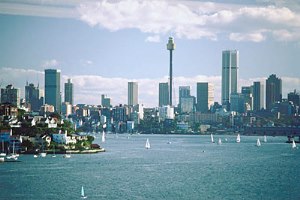 Following up from the inaugural seminar on Managing the Blue Economy international project held in Papeete, French Polynesia, the second seminar, which will focus on ports and sustainability will be held in Busan, Korea in partnership with the Korea Maritime Institute (KMI). The seminar will address environmental challenges and risks such as climate change concerns and pollution at ports. It will also look at economic challenges in light of increasing size in vessels which necessitate upgrading of ports, concerns over potential feederization or marginalization of small to medium-sized ports, best practices in increasing energy efficiency at ports while keeping them green. From the policy perspective, we will also be looking at what the local authorities, governments, and international organizations could do better in lights of these fast-paced developments. Following up from the inaugural seminar on Managing the Blue Economy international project held in Papeete, French Polynesia, the second seminar, which will focus on ports and sustainability will be held in Busan, Korea in partnership with the Korea Maritime Institute (KMI). The seminar will address environmental challenges and risks such as climate change concerns and pollution at ports. It will also look at economic challenges in light of increasing size in vessels which necessitate upgrading of ports, concerns over potential feederization or marginalization of small to medium-sized ports, best practices in increasing energy efficiency at ports while keeping them green. From the policy perspective, we will also be looking at what the local authorities, governments, and international organizations could do better in lights of these fast-paced developments.
This project consists of a series of three seminars in different PECC locations over 2015-2016 and is led by the France (Pacific Territories) Committee for PECC (FPTPEC).
Read more...
MEMBER UPDATES
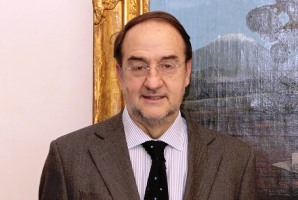
Ambassador Alfonso de Maria y Campos has been appointed as the new General Coordinator (Standing Committee member for PECC) for MXCPEC. He takes over the position from Ambassador Alejandro Madrigal since January 2016, and is currently the Director General for Asia-Pacific at the Mexican Ministry of Foreign Affairs.
Ambassador de Maria y Campos completed undergraduate studies in Law and Political Science at the National Autonomous University of Mexico (UNAM), from 1969 to 1974. He majored in Latin American studies and pursued graduate studies in History at the University of Cambridge, England from 1974 to 1977. He was a full-time professor at the Autonomous University of Mexico (UNAM), where he taught History. He also taught “History of Economics” at the Mexican Technological Autonomous Institute (ITAM), for the masters' program in economics from 1984 to 1985.
Prior to his current position, from May 2013 to October 2015, he served as Director General of the Matías Romero Institute the Diplomatic Academy and as Director General of the National Institute of Anthropology and History (INAH) from December 2006 to December 2012. He joined the Ministry of Foreign Affairs (SRE) in 1988 as Director General of Cultural Affairs. He was appointed Director General for Europe in 1993. He was appointed as the Mexican Consul General in San Francisco, California in March 2004, and was conferred the rank of an ambassador in April 2005.
PUBLICATIONS
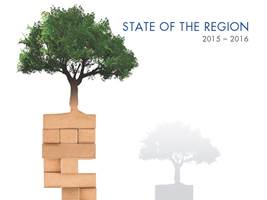 Executive Summary Executive Summary
The Asia-Pacific is forecast to grow by 3.2 percent in 2015, the lowest level since the Global Financial Crisis before returning to what has become the ‘new normal’ growth of around 3.4 to 3.5 percent. Growth for both advanced and emerging economies in the region is significantly lower than before the crisis years, indicative of the important structural changes taking place both within regional economies as well as in the Asia-Pacific region as a whole.
Several initiatives are under way that could help to boost growth including the launching of the Asian Infrastructure Investment Bank (AIIB), the Trans-Pacific Partnership (TPP), and the Regional Comprehensive Economic Partnership (RCEP). However, much more is needed. Increasingly, economies aspire to, and demand, growth that is sustainable and inclusive. This raises the very real question of where such growth will come from. As tariffs, quotas and other trade barriers have fallen with trade liberalization, the focus of efforts to generate growth has shifted to structural obstacles that create behind-the-borders barriers to business. Structural reforms are changes in government institutions, regulations and policies designed create a business environment that supports efficient markets. The goal of structural reform is to bolster the strength and efficiency of markets in order to enhance living standards.
The overarching theme for this year’s series of APEC meetings has been inclusive growth. Previous PECC surveys have indicated relatively low levels of satisfaction across the region with efforts to make growth more inclusive.
According to the results of the 2015 State of the Region survey, the top 5 most important issues to promote inclusive growth were:
• Provision of public education
• Reducing corruption
• Providing support to micro, small and medium enterprises
• Quality of health services
• Social safety nets including healthcare, unemployment and pensions reforms
These broad themes were also reflected in the policy community’s views on what should be the top priorities for APEC leaders’ discussions in Manila, which were:
• Progress towards the Bogor Goals and the Free Trade Area of the Asia-Pacific (FTAAP)
• The APEC Growth Strategy
• SME participation in regional and global markets
• Corruption
• Climate change cooperation and disaster resilience
• Improving human capital development
• Physical, institutional and people to people connectivity
• The development of regional financial systems
• A major APEC initiative on services
• The reform of regional institutional architecture
Read more...
|






